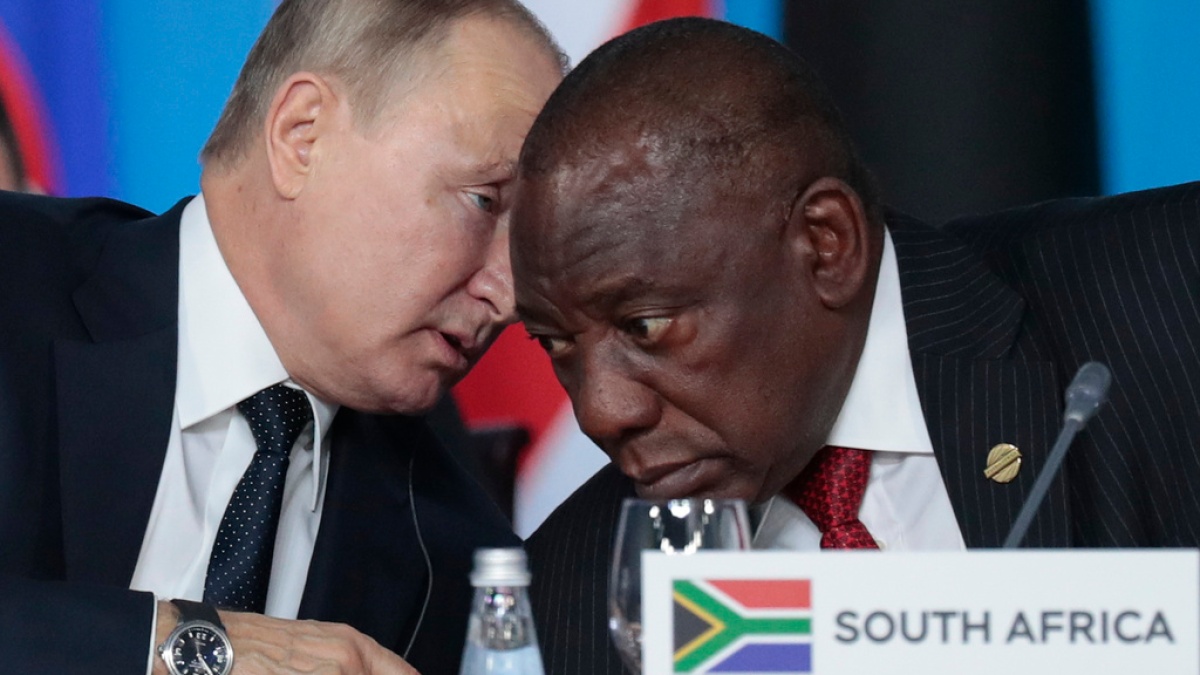
The competition between the United States and its allies, on one hand, and China and its BRICS partners and allies, on the other, has taken on visible signs of a “new aggressive Cold War. according to Michael Mishon, Corporate Africa.
President Xi Jinping, leader of China’s Communist Party and the PRC, echoes the belief of his predecessor, Mao Zedong, that “the East is rising and the West is declining,” This sentiment currently reverberates around the entire world as nations struggle to be on the right side of history choosing to partner with the pack they believe will win the cold war or any war issuing from it.
In 2022 USA Secretary of State Antony Blinken indicated that “China is the only country with the intent to reshape the international order – and, increasingly, the economic, diplomatic, military and technological power to do it.” This means the intense competition between the USA and China will likely escalate into a brutal cold war and, eventually, an all-out war, which would not be over Taiwan; the USA, like most countries, accept Taiwan as part of China. The war would be to stop China from overtaking the USA to become the dominant world power, pushing the USA off its global top spot.
China since the 21st century has been competing with America across all fields ranging from economic development, technology, geopolitics in the Indo-Pacific Area, and military might. China is the winner across most of Africa, Asia, and Russia. The USA – NATO proxy war with Ukraine ignited in 2014 following the coup against President Viktor Yanukovych of Ukraine, according to CNN (https://www.brighteon.com/0a026135-2f6d-4b09-b716-43b65cede74b): The economic war imposed by the USA and Europe against Russia in 2022, following its military “Special Operation” into Ukraine and more than US$100 billion support for Ukraine’s war effort by the USA European Alliance have led to massive inflation, food shortages, and all time high energy prices. It has acted to rapidly accelerate the willingness of nations to side with either of the two Alliances. No countries are sitting on the fence. They are either with one or the other, and the China – BRICS Alliance appears to have gained the center of gravity in the global South. And with newly established rapprochement between Saudi Arabia and Iran, the end of the Saudi-Yemen war, and the collapse of the Saudi-USA special relationship, has led to the end of the USA influence in the Middle East.
The departure of Saudi Arabia from under American influence could not have come at a worse time, during a political era led by President Joe Biden, who appears to be the weakest USA president in living memory, with all manner of corruption allegations connecting him and his family to racketeering in Ukraine. The USA’s “anti-China containment policy” with NATO, Australia, and Japan does not appear to be working. China, whose manufacturing capacity is more than that of the combined USA and European Union is in alliance with Russia and, together with their BRICS and newfound partners, appear to be moving away from the USA dollar to conduct trade in local currencies. This is leading to a move away from the American currency and over time to de-dollarization. These developments would indicate that the new Cold War between the two sides is not significantly different from that between the USA and the former Soviet Union. There exists again two poles of influence developing leading again to a multipolar world, the end of globalization and the USA- military and economic dominance; with the USA NATO Alliance on the one hand and China BRICS Alliance, which includes two third of the world’s population, on the other.
The significant difference now between the two poles is that the USA is struggling to remain the dominant economy and power, promoting human and minority rights, climate change, and even conflict against its own partners, according to Seymour Hersh (the USA most esteemed Investigative Journalist), to maintain influence. The China partnership on the other hand uses investments and trade, including military hardware, to spearhead its global influence.
The new cold war will impact African nations now and in the future? Since its first outings in Africa 20 years ago, China has based its interactions on mutual partnerships around investments and trade, shared respect, and the rule of law. Unlike the USA, China does not have an imperial racist history of enslavement of African people, nor of dividing the land and populating it with different tribes of people to foster future conflicts to facilitate looting, which is what the Berlin Conference in 1885 effected. A united Africa without national borders, where natural resources and commodities are strategically managed and traded would immediately impact the demise of the USA dollar and NATO partners’ economies: Hence, the need for numerous borders and the extermination of Colonel Gadaffi, the former Libyan leader who had inspired a United States of Africa and was its leader.
African nations inside their colonial borders are however, poised to benefit from the new cold war, including South Africa, which became the fifth member of the BRIC, turning the acronym into BRICS in December 2010. At least twenty African nations have requested to join the BRICS and the Shanghai Cooperation Organisation. Twelve nations have already made formal applications for BRICS membership, including Zimbabwe, Nigeria, Egypt, Algeria and Sudan, which in April of 2023 exploded into war without warning. The China BRICS Alliance would help Africa accelerate industrialization and infrastructure development while offering security in the form of military training and hardware sales if required. A larger contingent of African nations in the BRICS would also build capacity by giving real incentives to AfCFTA in finance, manufacturing, and regional and global trade between their member states, and exploitation of the China Belt and Road global initiative.
Understanding how the USA-NATO Alliance will benefit Africa during this new cold war is difficult. The USA-NATO Alliance interests are opposed to the culture and economies of the region and the goodwill of African people living inside their borders and on the African continent. The American Alliance diplomacy relating to Africa during the 20th century was defined by coups, wars, conflict, and looting of raw materials. The 21st century witnessed a softer approach involving MOUs between the USA and individual countries resulting in access to the USA markets to Africa’s raw materials.
The USA NATO Alliance and its partner organizations, including the World Bank, United Nations, and World Health Organizations, are also divesting from fossil fuels, moving to cleaner, carbon-free energy. The problem is that Africa is full of fossil fuels. Although considerable sums of monies have been agreed to support the global South to develop green energy, the abysmal history of investments of these nations in the infrastructure of post-independent Africa would suggest that countries in Africa will have to go it alone with other partners to exploit their abundant fossil fuels and national and regional infrastructure.
The China BRICS Alliance’s global influence is much more extensive and more substantial than that of the USA NATO Alliance. The fight for dominance in Africa was led by former USA President Barak Obama, who managed to secure bases for the USA military on the continent while pushing homosexuality, same-sex marriage, and LGBTQ rights, which the majority of Africans believe will undermine population growth, depopulate the continent leading to control over their resources. They view it as an abomination, ungodly, and alien by populations which in most cases are God-fearing Bible or Koran reading Christians or Muslims. Such policies are very unlikely to challenge China BRICS Alliance, from which Africa has benefitted extensively through massive investments in infrastructure during the 21st century.

